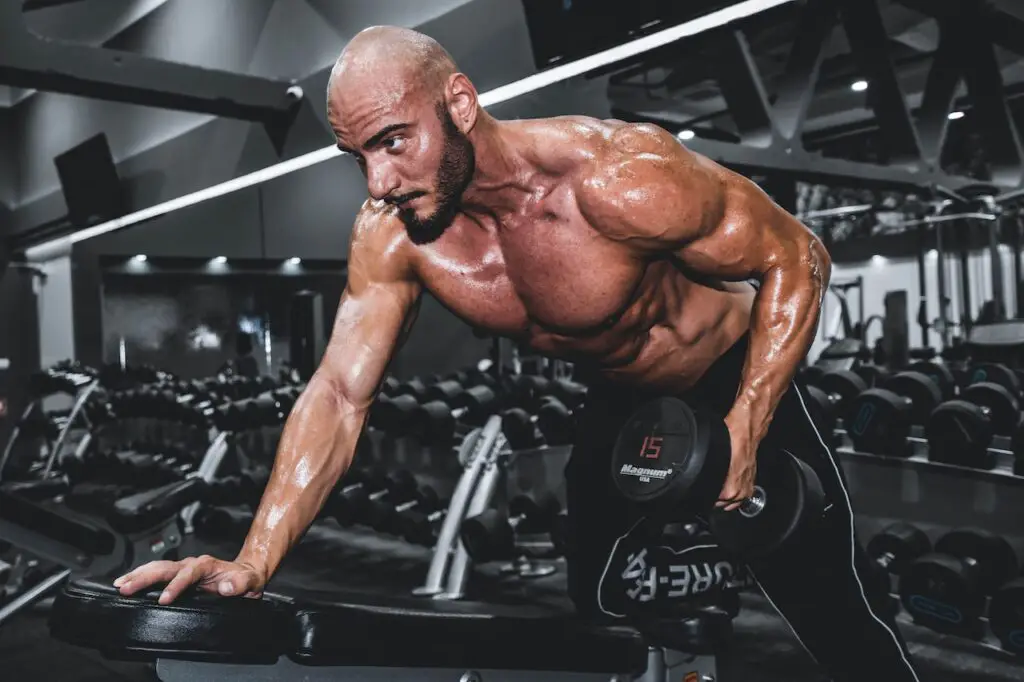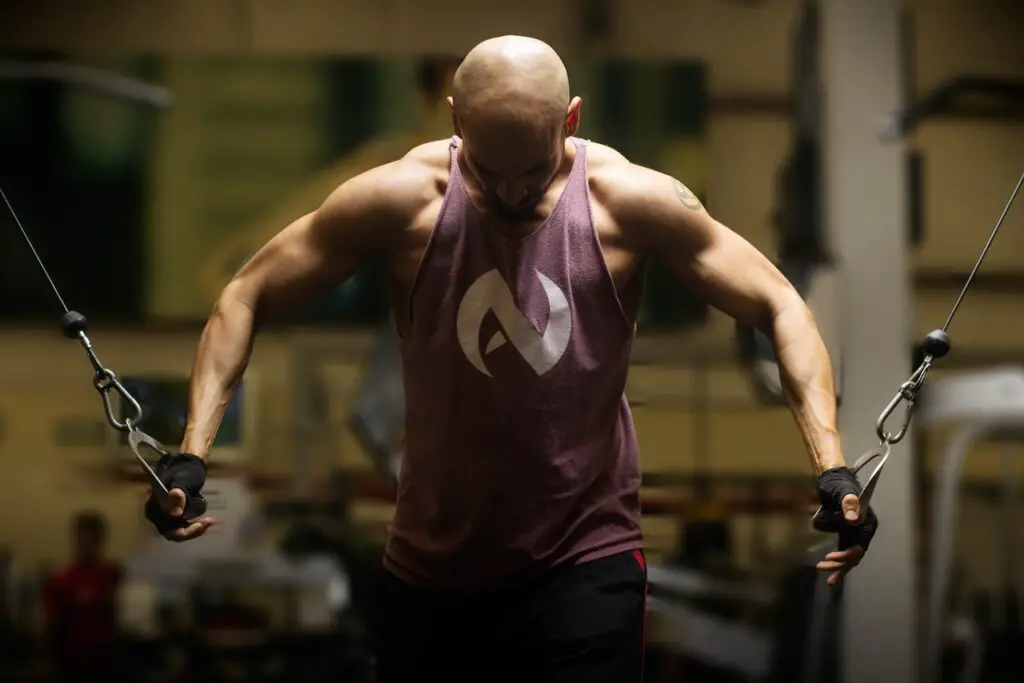Hair loss is a common concern among both men and women. Many factors can contribute to hair loss, including genetics, age, hormonal changes, and lifestyle choices. One topic that has garnered attention in relation to hair loss is the use of creatine supplements. Creatine is a popular dietary supplement used by athletes and fitness enthusiasts to enhance performance and muscle growth. However, there are claims suggesting a link between creatine usage and hair loss. In this article, we will separate fact from fiction by examining scientific studies and expert insights on the connection between hair loss and creatine.
Understanding Hair Loss
Hair loss, also known as alopecia, is a common condition that affects both men and women. It can be a source of concern and distress, as hair is often associated with beauty, youthfulness, and self-confidence. To understand hair loss better, it is important to delve into its causes and mechanisms.
Hair loss can occur due to a variety of reasons, with the most common form being androgenetic alopecia, which is genetically determined and often progresses with age. Hormonal imbalances, such as those related to thyroid disorders or hormonal changes during pregnancy and menopause, can also contribute to hair loss. Additionally, certain medical conditions like alopecia areata, scalp infections, and autoimmune diseases can lead to hair thinning or complete hair loss in patches.
Lifestyle factors can also play a role in hair loss. Poor nutrition, stress, and certain habits like excessive heat styling or tightly pulling the hair can contribute to hair breakage and loss. Furthermore, medications, such as chemotherapy drugs or those used to treat certain medical conditions, may cause temporary or permanent hair loss as a side effect.
Related: The Best Men’s Grooming Products for Balding Hair

What is Creatine?
Creatine is a naturally occurring compound that plays a vital role in energy production within our bodies. It is primarily stored in our muscles and serves as a quick source of energy during high-intensity activities. Creatine is also available as a popular dietary supplement that is commonly used by athletes, bodybuilders, and fitness enthusiasts.
As a supplement, creatine comes in various forms, with creatine monohydrate being the most widely used and studied. When consumed, it gets absorbed into the bloodstream and then transported to the muscles, where it is converted into phosphocreatine. Phosphocreatine helps replenish adenosine triphosphate (ATP), the molecule responsible for providing energy to our cells.
By increasing the levels of phosphocreatine in the muscles, creatine supplementation can enhance energy production during intense workouts, enabling individuals to train harder and recover more quickly. It is particularly beneficial for activities that require short bursts of intense effort, such as weightlifting or sprinting.
Creatine has been extensively researched, and numerous studies have demonstrated its effectiveness in improving exercise performance, increasing muscle strength, and promoting muscle growth. Additionally, creatine supplementation has been shown to have potential benefits for certain medical conditions, such as muscular dystrophy, Parkinson’s disease, and even cognitive function.
The Connection between Creatine and Hair Loss
The connection between creatine and hair loss has been a topic of discussion and concern, particularly among individuals who use creatine supplements for athletic performance and muscle growth. However, it is important to separate fact from fiction and examine the scientific evidence on this matter.
At present, there is no direct evidence or scientific consensus suggesting that creatine supplementation directly causes hair loss. Hair loss is a complex condition influenced by a variety of factors, including genetics, hormonal changes, age, and overall health. While some anecdotal reports and online discussions have raised concerns about creatine usage and its potential impact on hair health, it is essential to approach these claims with caution.
Scientific studies investigating the connection between creatine supplementation and hair loss have not provided concrete evidence supporting a causal relationship. For example, a study published in the Journal of Clinical Psychopharmacology found no significant difference in hair loss between individuals who used creatine and those who did not.
Related: 10 Astonishing Reasons Why the K18 Hair Mask Will Transform Your Life Forever

Scientific Studies on Creatine and Hair Loss
Scientific studies have played a significant role in examining the potential link between creatine supplementation and hair loss. These studies aim to provide evidence-based insights and shed light on the topic.
One notable study published in the Clinical Journal of Sport Medicine conducted a comprehensive analysis of the available research on creatine supplementation and its effects on hair loss. The researchers reviewed multiple studies involving individuals who used creatine supplements for various durations and dosages. The analysis concluded that there was no substantial evidence to support the claim that creatine supplementation directly causes hair loss.
Another study published in the Journal of the International Society of Sports Nutrition examined the effects of creatine supplementation on hair loss in professional rugby players. The study followed the players over a 21-week period, during which they consumed creatine supplements. The results showed no significant increase in hair loss compared to the control group.
While scientific studies have consistently failed to establish a direct link between creatine and hair loss, it is important to note that individual experiences may vary. It is always advisable to consider personal factors and consult with healthcare professionals to address specific concerns.
It is worth highlighting that the majority of studies have focused on short-term usage of creatine and its impact on hair loss. Long-term effects, particularly when used in high dosages, still require further investigation.
Related: Beards That Turn Heads: The Art of Sculpting and Styling Your Facial Hair
Expert Opinions and Insights
Expert opinions and insights play a crucial role in providing a comprehensive understanding of the connection between creatine and hair loss. Dermatologists, hair loss specialists, and other experts in the field offer valuable perspectives based on their clinical experience and knowledge.
Many experts concur that the available scientific evidence does not support the claim that creatine supplementation directly causes hair loss. They emphasize the need to consider other factors, such as genetics, hormonal imbalances, and overall health, when evaluating hair loss issues.
Experts highlight that hair loss is a complex condition influenced by various factors, and attributing it solely to creatine usage oversimplifies the issue. They stress the importance of a comprehensive approach that includes evaluating an individual’s medical history, lifestyle factors, and potential underlying causes of hair loss.

Factors Contributing to Hair Loss
Hair loss can be attributed to various factors that influence the health and vitality of our hair. Understanding these factors can help individuals identify potential causes and take appropriate measures to address hair loss concerns.
Genetics
One of the primary factors contributing to hair loss is genetic predisposition. Conditions like androgenetic alopecia, commonly known as male or female pattern baldness, can be inherited and lead to progressive hair thinning and loss.
Hormonal Changes
Hormonal imbalances can trigger hair loss. For example, elevated levels of dihydrotestosterone (DHT), a byproduct of testosterone, can contribute to hair follicle shrinkage and eventual hair loss. Hormonal changes during pregnancy, menopause, or conditions like polycystic ovary syndrome (PCOS) can also impact hair health.
Age
As individuals age, their hair follicles may undergo natural thinning, leading to hair loss. The hair growth cycle slows down, and the rate of hair regrowth diminishes, resulting in overall hair thinning.
Medical Conditions
Certain medical conditions and treatments can contribute to hair loss. Conditions like alopecia areata, scalp infections, thyroid disorders, and autoimmune diseases can cause hair thinning or patchy hair loss. Furthermore, medical treatments such as chemotherapy and radiation therapy can result in temporary or permanent hair loss.
Nutritional Deficiencies
Inadequate nutrition, particularly deficiencies in essential vitamins and minerals like iron, zinc, vitamin D, and B vitamins, can affect hair health and contribute to hair loss.
Lifestyle Factors
Certain lifestyle choices and habits can impact hair health. Excessive heat styling, harsh chemical treatments, frequent use of tight hairstyles (like braids or ponytails), and aggressive hair brushing can lead to hair breakage and damage over time.
Related: The Benefits of Collagen Supplements for Skin, Hair, and Nails
Other Factors that May Influence Hair Loss
Besides creatine usage, there are other lifestyle factors that may influence hair loss. These include smoking, excessive alcohol consumption, poor diet, lack of exercise, and high levels of stress. Taking a holistic approach to hair health by addressing these factors can be beneficial in preventing hair loss.
Tips for Preventing Hair Loss
Preventing hair loss requires a proactive approach that encompasses various aspects of hair care and overall well-being. Here are some tips to help maintain healthy hair and minimize the risk of hair loss:
Practice a Balanced Diet
Ensure your diet includes a variety of nutrient-rich foods, such as fruits, vegetables, lean proteins, whole grains, and healthy fats. Essential nutrients like vitamins, minerals, and proteins are crucial for maintaining healthy hair.
Avoid Excessive Heat Styling
Limit the use of heated styling tools like curling irons, straighteners, and blow dryers. Excessive heat can damage the hair shaft and lead to breakage and hair loss.
Be Gentle with Hair
Avoid aggressive brushing or combing when the hair is wet, as wet hair is more prone to breakage. Use a wide-toothed comb or a brush with soft bristles to minimize damage.
Avoid Tight Hairstyles
Avoid hairstyles that pull tightly on the hair, such as ponytails, braids, or buns. These styles can cause traction alopecia, a form of hair loss caused by constant tension on the hair.
Protect Hair from the Sun and Harsh Elements
When spending time outdoors, protect your hair from excessive sun exposure, wind, and pollutants by wearing a hat or using a protective hair spray or serum.
Manage Stress
Practice stress-management techniques such as exercise, meditation, or engaging in hobbies to reduce stress levels. High-stress levels can contribute to hair loss.
Regular Scalp Care
Keep your scalp clean and healthy by regularly washing it with a gentle shampoo and conditioner. Pay attention to any signs of scalp infections or conditions and seek appropriate treatment if needed.
Avoid Smoking
Smoking can constrict blood vessels and reduce blood flow to the hair follicles, leading to hair loss. Quitting smoking can have a positive impact on hair health.
Final Thoughts
Hair loss is a multifactorial issue, and attributing it solely to creatine usage is unsupported by scientific evidence. The claims linking creatine supplements to hair loss are largely based on anecdotal reports and lack substantial backing. Genetic factors, hormonal imbalances, age, and overall health are more significant contributors to hair loss. If you are concerned about hair loss, it is advisable to consult with a healthcare professional or a dermatologist for a comprehensive evaluation and personalized recommendations.
FAQs
Can creatine supplements cause hair loss?
There is no scientific evidence supporting the claim that creatine supplements cause hair loss. Hair loss is a complex condition influenced by multiple factors.
Should I stop taking creatine if I’m experiencing hair loss?
If you are experiencing hair loss, it is advisable to consult with a healthcare professional or a dermatologist. They can help determine the underlying causes and provide appropriate recommendations.
Are there any side effects of creatine supplementation?
Creatine is generally considered safe when used as directed. However, some individuals may experience side effects such as gastrointestinal discomfort or muscle cramps. It is recommended to follow the recommended dosage and consult a healthcare professional if you have any concerns.
What are the primary factors contributing to hair loss?
The primary factors contributing to hair loss include genetic predisposition, hormonal changes, aging, and overall health. Lifestyle factors and certain medical conditions can also play a role.
How can I maintain healthy hair?
To maintain healthy hair, follow a balanced diet, avoid excessive heat styling and chemical treatments, manage stress, and address any underlying medical conditions. Consult with a healthcare professional for personalized advice and recommendations.

